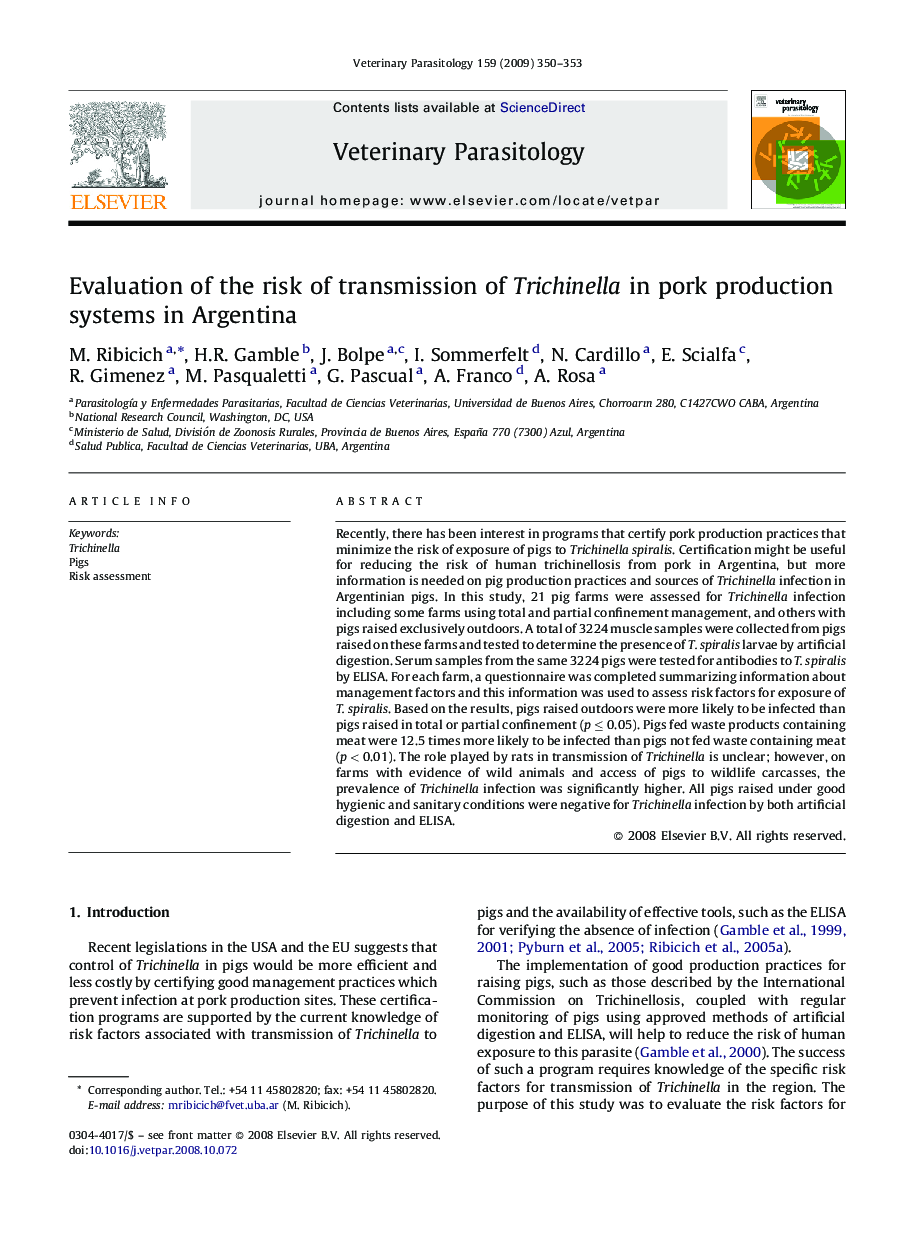| Article ID | Journal | Published Year | Pages | File Type |
|---|---|---|---|---|
| 5806405 | Veterinary Parasitology | 2009 | 4 Pages |
Abstract
Recently, there has been interest in programs that certify pork production practices that minimize the risk of exposure of pigs to Trichinella spiralis. Certification might be useful for reducing the risk of human trichinellosis from pork in Argentina, but more information is needed on pig production practices and sources of Trichinella infection in Argentinian pigs. In this study, 21 pig farms were assessed for Trichinella infection including some farms using total and partial confinement management, and others with pigs raised exclusively outdoors. A total of 3224 muscle samples were collected from pigs raised on these farms and tested to determine the presence of T. spiralis larvae by artificial digestion. Serum samples from the same 3224 pigs were tested for antibodies to T. spiralis by ELISA. For each farm, a questionnaire was completed summarizing information about management factors and this information was used to assess risk factors for exposure of T. spiralis. Based on the results, pigs raised outdoors were more likely to be infected than pigs raised in total or partial confinement (p â¤Â 0.05). Pigs fed waste products containing meat were 12.5 times more likely to be infected than pigs not fed waste containing meat (p < 0.01). The role played by rats in transmission of Trichinella is unclear; however, on farms with evidence of wild animals and access of pigs to wildlife carcasses, the prevalence of Trichinella infection was significantly higher. All pigs raised under good hygienic and sanitary conditions were negative for Trichinella infection by both artificial digestion and ELISA.
Keywords
Related Topics
Life Sciences
Agricultural and Biological Sciences
Animal Science and Zoology
Authors
M. Ribicich, H.R. Gamble, J. Bolpe, I. Sommerfelt, N. Cardillo, E. Scialfa, R. Gimenez, M. Pasqualetti, G. Pascual, A. Franco, A. Rosa,
